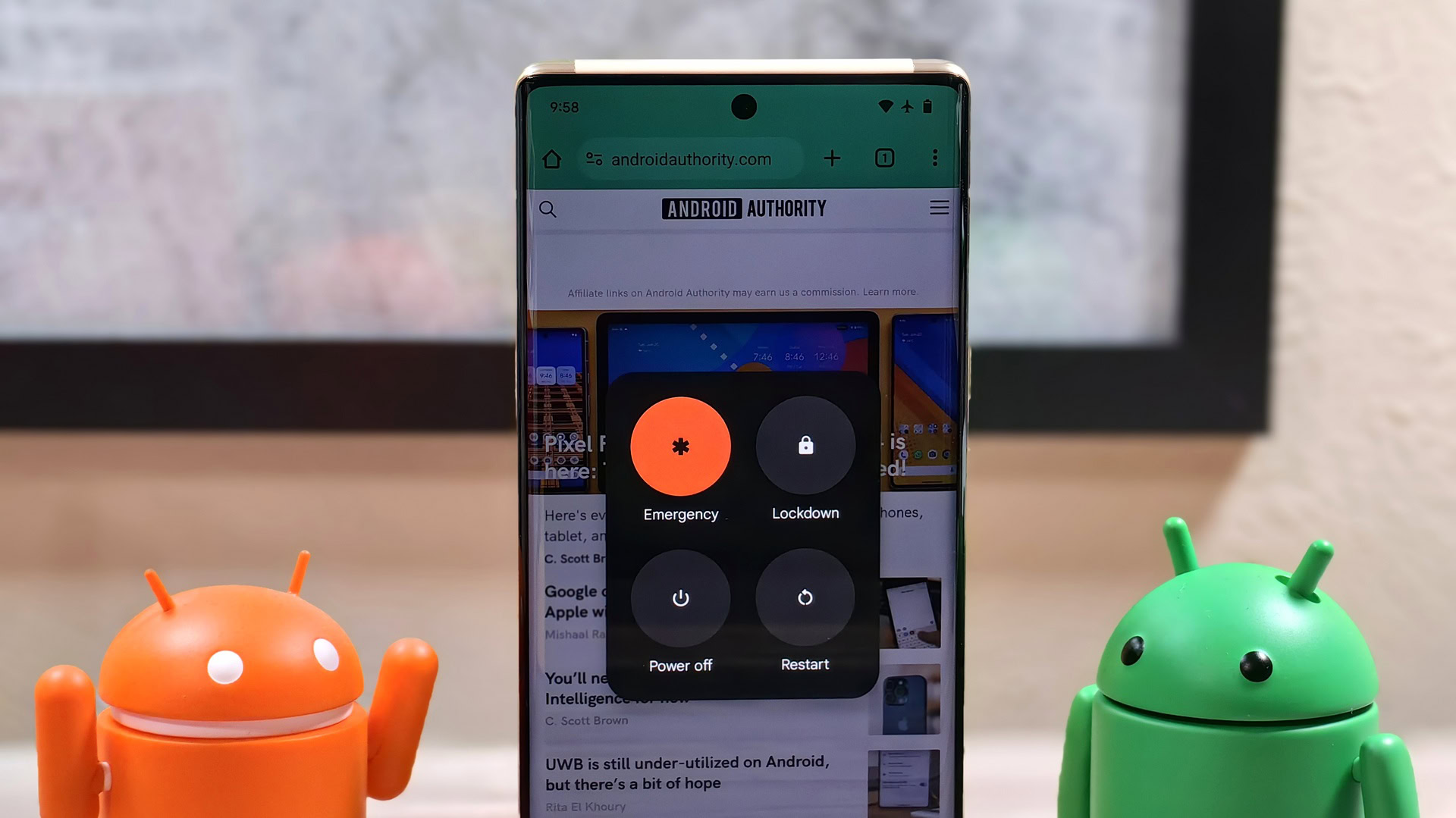Affiliate links on Android Authority may earn us a commission. Learn more.
Google clarifies what's happening with Android's auto-reboot feature
Published onApril 16, 2025

- Earlier this week, many media outlets reported that Google is rolling out an auto-reboot feature to Android that automatically restarts devices that have been locked for 3 consecutive days.
- This auto-reboot feature was mentioned on the Google System Release Notes page, where Google routinely shares information on new and upcoming Android and Google Play features.
- Recently, Google quietly updated the wording on this page to say that the auto-reboot feature is optional and coming in the future.
Earlier this week, Google quietly revealed — via its Google System Release Notes page — that it was rolling out a new auto-reboot feature to Android devices. The feature, as described, works similarly to Inactivity Reboot in iOS 18.1 or the auto-reboot feature in GrapheneOS. If an Android device has been locked for 3 consecutive days, then it’ll be automatically rebooted.
Late last month, Android Authority contributor AssembleDebug tore down the Google Play Services app and discovered a reference to this auto-reboot feature, known internally as “inactivity reboot.” He found evidence that the feature is tied to Advanced Protection Mode, a new feature in Android 16 that provides a way for the system and for third-party apps to know when users are enrolled in Google’s Advanced Protection Program. Advanced Protection Mode will serve as a one-click option to enable certain security features in the OS and in compatible third-party apps.
Because Google has yet to actually provide a UI for enabling Advanced Protection Mode in Android 16, we speculated that Google was not, in fact, rolling out this new auto-reboot feature. Today, we discovered that Google has quietly updated the wording on the Google System Release Notes page to confirm that the feature isn’t actually rolling out. Furthermore, the new wording confirms that the feature will be optional once it does roll out.
Before:
[Phone] With this feature, your device automatically restarts if locked for 3 consecutive days.
After:
[Phone] Enables a future optional security feature, which will automatically restart your device if locked for 3 consecutive days.
While the updated wording doesn’t confirm whether the auto-reboot feature will only be available on certain Android versions, it should ease some general concerns about the feature. Some users worried it would disrupt their secondary Android devices by preventing them from consistently running background tasks or checking notifications. Fortunately, Google confirmed the auto-reboot feature is optional, so users who need their devices to always be online can keep it disabled.
Google hasn’t publicly provided a rationale for why it made this feature, but it’s easy to guess why. Most Android devices today use an encryption scheme called file-based encryption (FBE). FBE was introduced back in Android 7.0 Nougat, replacing the older full-disk encryption (FDE) scheme. Under FDE, the entire userdata partition is encrypted with a single key derived from the user’s lock screen credential (PIN, pattern, or password), which the user must enter during boot to decrypt the partition. In contrast, FBE encrypts different files using different keys. This enables some apps supporting Android’s Direct Boot feature to operate even before the user decrypts the main userdata partition after booting up.

When an Android device using FBE first boots up, it enters a state called Before First Unlock (BFU), where the majority of the userdata partition remains encrypted. However, once the user enters their PIN, pattern, or password for the first time, the device transitions to the After First Unlock (AFU) state, fully decrypting the userdata partition. Because this decrypted data can be valuable to hackers or government agencies, they often try to obtain already unlocked devices to perform digital forensics. The auto-reboot feature aims to combat this by forcing devices back into the BFU state if they remain locked for 3 consecutive days—an indicator the device might be held for such purposes.
Most users won’t need a feature like this, but it’s nice to see Google implement it regardless. Android is the world’s most widely used operating system, so there are undoubtedly some people who need this auto-reboot feature. Hopefully Google rolls it out soon.